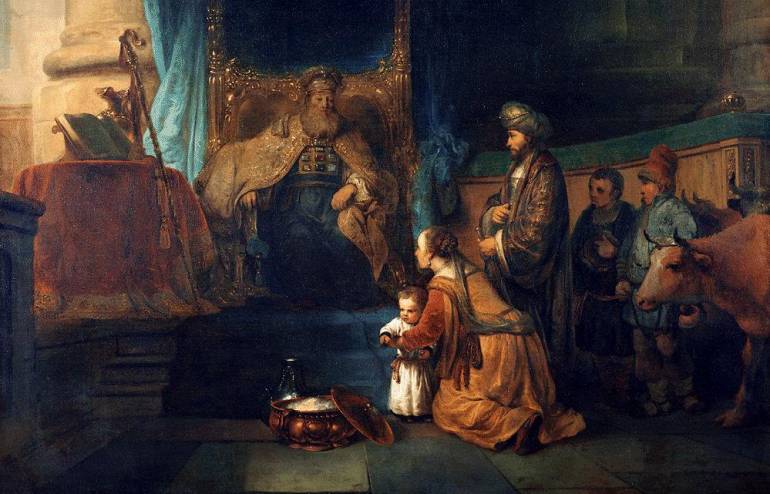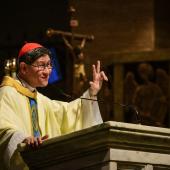A worried, anxious, or vexatious prayer reaches heaven immediately!

January 9, Tuesday of the First Week in Ordinary Time
St. Adrian of Canterbury
Daily readings: 1 Samuel 1:9-20, Mark 1:21-28
Hannah, the barren wife of Elkanah, is in the temple of the Lord to pray for the gift of a child. In distress, she pours out her heart before the Lord and finds His favour. Hannah’s prayer involves her whole person: body, mind, spirit, heart and lips. Since God is the one who either opens or closes the womb as per the scriptures, the fruit of the womb is a pure gift of the Lord. Barrenness is considered a curse. Hannah does not give up her hope in the Lord. It is so powerful that God remembers her.
God remembering a person in the biblical world leads to salvation. Hannah gives birth to Samuel in due time and takes him to the Temple to offer him to God. She names him Samuel because she has asked for him from the Lord. He goes on to become the last of Israel’s Judges and the first prophet after Moses. He becomes one of the most significant figures in the history of Israel, especially during the transition from Judges to Monarchy. Hannah’s prayer becomes one of the models of prayer in the Old Testament.
Jesus begins his Galilean ministry in Capernaum. He enters the Synagogue and begins to teach. He teaches with authority, and all are astonished at his teaching prowess. It is a Sabbath day. By referring to him as Jesus of Nazareth and the Holy One of God, a man under the influence of an unclean spirit reveals both his divine and human nature. Jesus rebukes him, as he does not need his testimony. The devil's knowledge is devoid of faith. He is a liar as he tries to control Jesus. Mere knowledge of Jesus does not save anyone. What saves is ‘knowing Jesus’ and constructing a personal and intimate relationship with Jesus with faith.
Benedictine Monk St. Adrian of Canterbury is an African by birth. He lived in Italy. He humbly refused to become the Archbishop of Canterbury, but he had to take up the role of the Abbot of the Monastery of St. Peter of Canterbury. He transformed the Abbey into the center of learning and formation.
Call to Action for Catholic Living: It is good to check the content of my prayer. It reveals the type of relationship that I have with my God.
Radio Veritas Asia (RVA), a media platform of the Catholic Church, aims to share Christ. RVA started in 1969 as a continental Catholic radio station to serve Asian countries in their respective local language, thus earning the tag “the Voice of Asian Christianity.” Responding to the emerging context, RVA embraced media platforms to connect with the global Asian audience via its 21 language websites and various social media platforms.














